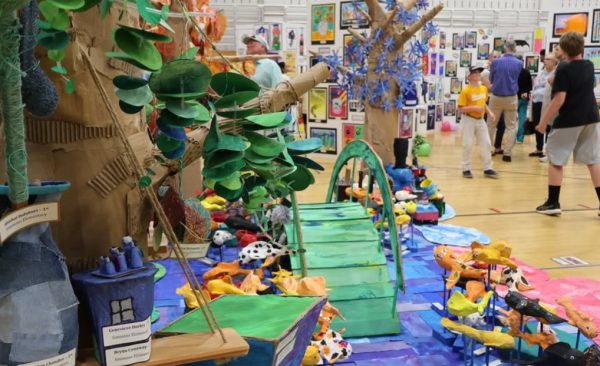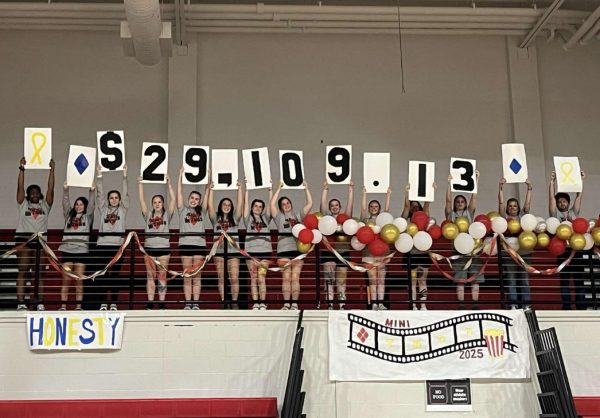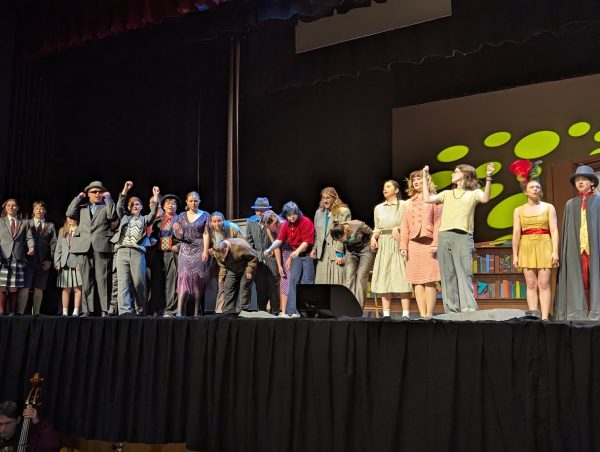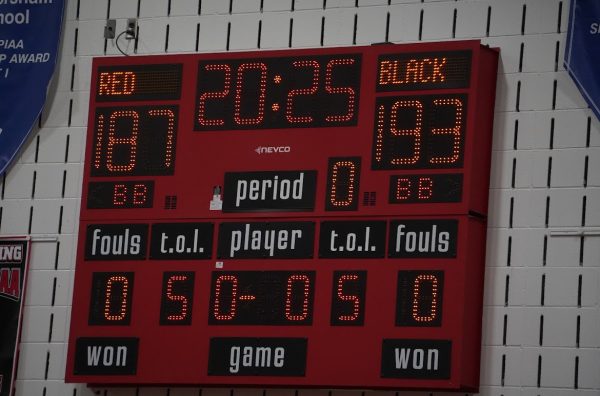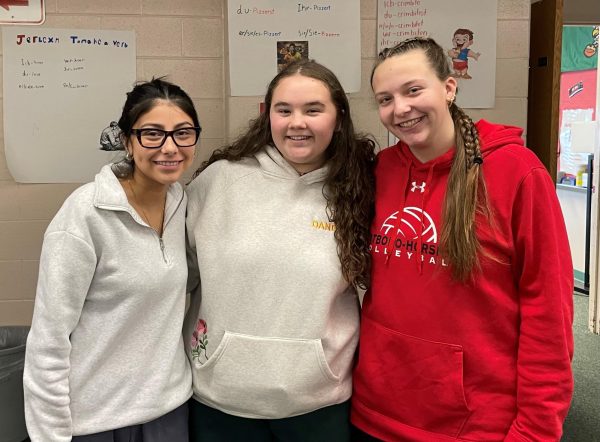HH Experiences of Ramadan
Children practicing the Turkish tradition of collecting gifts from adults at the Turkish Cultural Center in Philly.
“O you who have believed, decreed upon you is fasting as it was decreed upon those before you that you may become righteous” — Surat Al-Baqarah 2:183
Ramadan is the ninth and holiest month on the Islamic calendar. It is a time when not only familial but communal ties are brought together.
For a Muslim person like myself who has been physically and emotionally separated from their culture, Ramadan allows me to explore and reconnect with my roots through fasting.
“During Ramadan, I get to spend a lot of time with my family and friends,” senior Selda Oksuz shared. “I also get to invite my non-Muslim family friends to dinners as well, which is always a great experience.”
A new sophomore transfer student Aliia Kungorova shared her perspective (translated as follows),
“[Ramadan] has been going fine for me so far, it is definitely not hard. I have been fasting, not eating during the day, for the third year in a row now. Since there are obligatory and optional fasts, when I was a kid, I only was fasting every other day for Ramadan. Now I even fast during the summer.”
After mentioning the prayer room available to everyone in F-209, Aliia commented:
“I don’t understand English, so I didn’t know that we had a prayer room. I heard that they were saying something about Ramadan over the speakers but I didn’t understand what exactly they were saying.”
There have been multiple setbacks in HH’s support system for Muslim students. For instance, sometimes students were not able to access the prayer room because the door was locked. Fortunately, that problem was quickly resolved as soon as Dr. Dennis Williams was made aware.
“The other day I went there just to check it out with some friends and there were kids smoking in there… so that’s a thing,” senior Yusif Kanan recalled. “There’s been a few people who are disrespectful without fully realizing it in terms of drinking or eating in front of me as a “joke.” Aside from that though, [it is] generally supportive.”
He added, “Even though I’m not really that religious at this point, Ramadan is something I still partake in and find significant because it helps me feel much closer to my family, who I otherwise don’t see very often. I, since Ramadan has started, have seen my family and eaten with them more than I did all of last year put together. It’s also a month of focus, of discipline, of airing out negativity in your life.“
Eid, which spans three days of celebration, marks the end of Ramadan. Muslims around the world have varying traditions to celebrate the holiday. Over the weekend, festive celebrations including cooking national meals, gift-giving, cleaning the house, and traveling took place in Muslim communities. For instance, in Türkiye, there is a tradition of adults giving Eid money to kids. In addition to the festive celebrations, Eid encourages, to seek forgiveness and exercise empathy towards each other.


